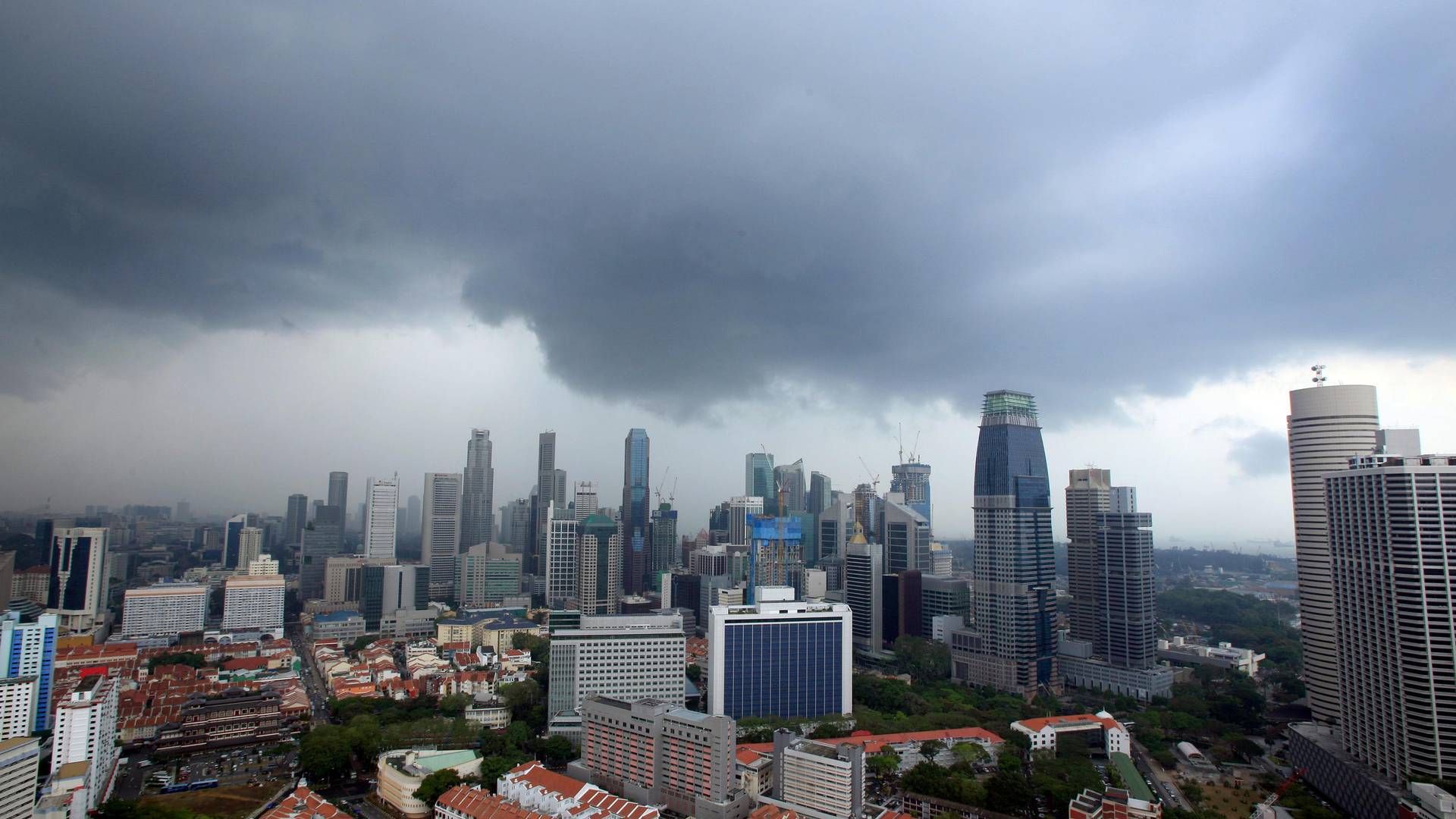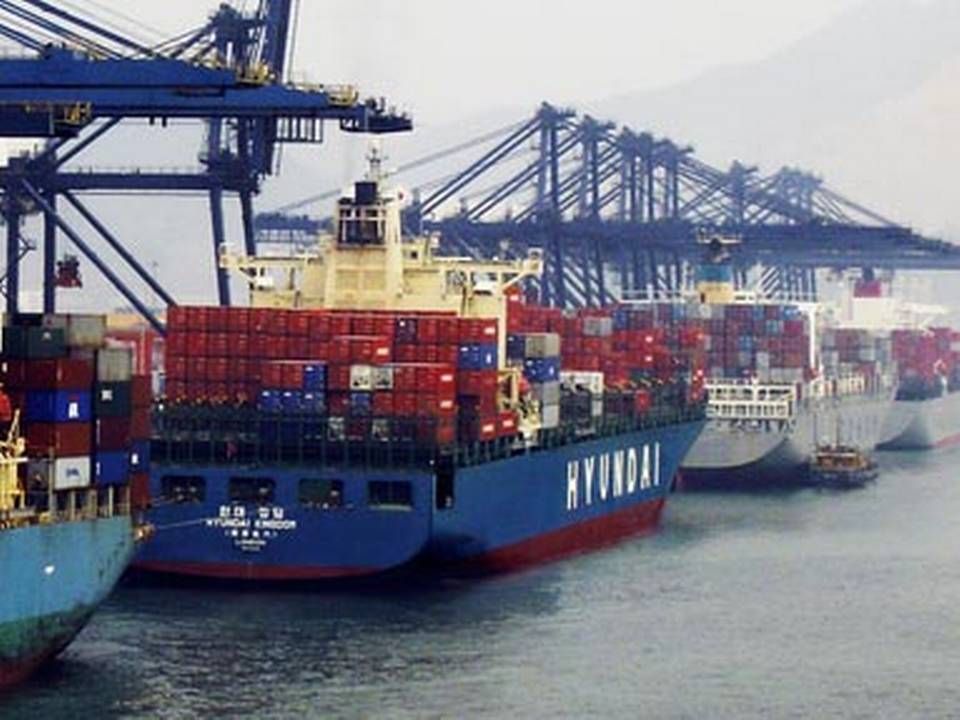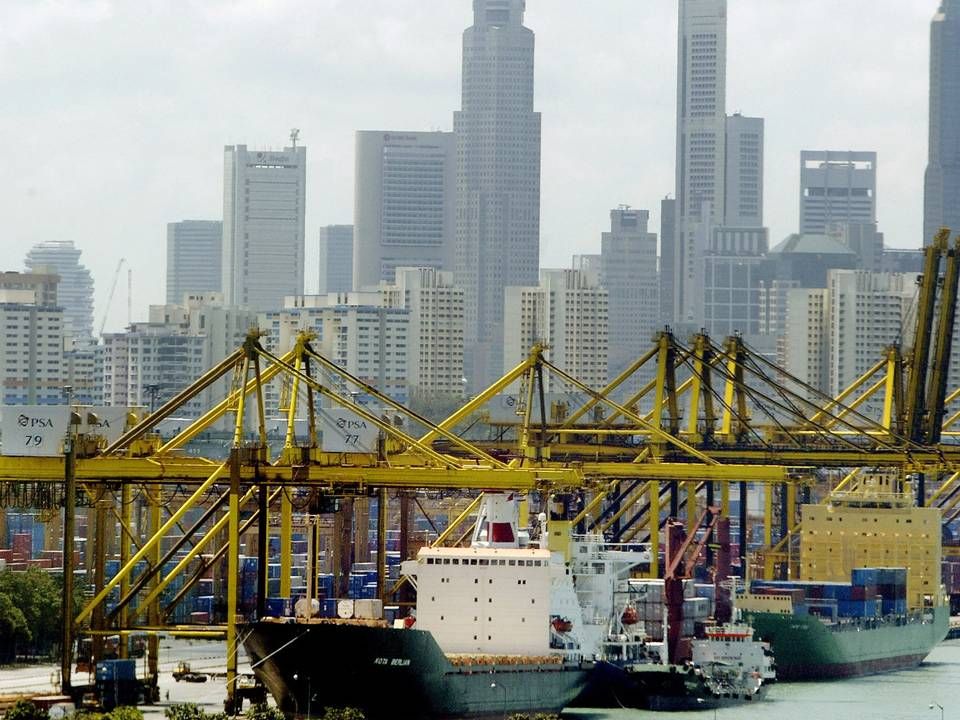Bunker prices in Singapore driven up by strict monitoring of suppliers

SINGAPORE
The prices for bunker oil in Singapore, the world’s largest port for sales of marine fuel, have risen by an average USD 5-10 per ton in 2017.
The explanation for the price increase is directly related to the new requirements from authorities concerning the use of mass flow meters, which aim to ensure, along with control systems and other measures, that the vessels take delivery of the correct fuel volumes paid for by the carriers.
This is the sentiment among bunker companies in Singapore speaking to ShippingWatch.
To summarize, it is harder to cheat now. It does not matter that many industry stakeholders have admitted that this is not a 100-percent guarantee that illegal activities will be completely avoided, despite Singapore’s Maritime and Port Authority (MPA) entering contracts with three private companies to carry out unannounced inspections in the port area in Singapore of upwards of 150 bunker vessels today.
As the only country so far, Singapore has made it mandatory for the many bunker companies in the country to use mass flow meters combined with a control and rating system, in order to prevent any illegal activities with fuel volumes.
The integrity of the bunker supply system including certified and approved mass flow meter was implemented from Jan. 1 this year. Initially there was concern that bunker sales could decline with buyers seeking alternative supplies from neighboring ports such as Malaysia.
Record revenue in Singapore
With the exception of a few bunker companies losing their licenses this year, and the fact that authorities have charged one bunker company and three of its executives with defrauding customers for more than USD 8 million, the concerns of lower revenue from bunker oil seem to have been groundless.
Now is the time to persuade sceptics on Singapore's mass flow meters
Bunker oil sales in Singapore in 2017 are expected to be record high at around 50 million tons, compared to approximately 48 million tons the previous year. And among shipowners and bunker suppliers, which have declined to around 55 companies this year, satisfaction is spreading over the new and restrictive system.
"I expect the number of suppliers to decline further. Fundamentally, competition is always healthy in an industry, but the flipside is that too much competition can lead to very unhealthy practices. This likely happened in Singapore at a certain point, where we had too many suppliers and too much competition, where companies outbid each other with prices that did not make much financial sense," the Singapore-based tanker owner Hong Lam Marine with extensive experience in the bunker sector tells ShippingWatch:
"To survive, certain things happened which were not good for the industry. The problems are not unique to Singapore and apply whether we’re talking Singapore, Rotterdam or Houston."
Maintaining competitiveness
Sources confirm that in Singapore, ahead of the introduction of the new and more restrictive regime for bunker companies, there were concerns among bunker companies in the industry as well as authorities about whether Singapore – with its strict and transparent control system – would lose some of its competitive edge to countries such as Malaysia, Hong Kong or China.
"But after a year with the system, this doesn't seem to be the case. If companies had moved away and we thus had lost our competitiveness, then volumes would have declined. If at some point we should experience selling fewer volumes, this will be attributable to other factors such as the development in the global economy and changes in trade patterns between continents," says Hong Lam Marine:
"Making the bunker industry more transparent can only develop it, not reduce it," says Hong Lam Marine which owns and operater a fleet of 36 product carriers.
The rising prices in Singapore during 2017 is reflective of the fact that prices have now started to align with the true quantity, value and costs of the product.
"Regardless of whether you buy the oil from large oil companies or oil brokers, there is a market reference cargo price as reported by Platts. In addition, bunker sellers will need to account for storage, barging, financing and credit risks costs. When you add it all together, it does not seem possible that one can sell the product below or at the Platts cargo level and still make a profit," a source in the Singapore bunker industry tells ShippingWatch:
"Any seller or supplier must of course be able to argue for the price the product is sold at."
The authorities' rating of the bunker companies in Singapore, which would ultimately result in companies losing their license, has in the past been somewhat shrouded in mystery. But this part of the rules for bunker companies is also considered transparent.
Rating of suppliers
Singapore's Maritime and Port Authority (MPA) has assessed exact requirements for bunkering, for the equipment on board on the ships, for documents and requirements for recipients as well as several other conditions.
The authorities' rating (points demerits system) of bunker companies in Singapore, can ultimately lead to companies losing their licenses.
The points demerit system measures the quality of service and compliance to rules and procedures defined in the Singapore port authority standards of bunker supply. Valid customer complaints, violations of procedures in supplying, shortages and violation of supply system integrity on board supplying tankers can lead to loss of license, explains the source.
The MPA spent years developing a scheme with the ambition of having it broadly accepted by the sector.
Shortly before the scheme came into force at the turn of the year, the Director of MPA's Port Services Divison, Parry Oei, was confident when ShippingWatch asked whether the scheme would serve as a guarantee against cheating.
"We hope so! That's the intention. People are creative, but we will be one step ahead. We've been testing the system for four years and have not found any loop holes, so the integrity is in order," said Oei.
English Edit: Gretchen Deverell Pedersen
KPI: Mandatory mass flow meter will not eliminate bunker disputes
Almost half of Singapore's bunker barges are ready for inspection
Related articles
MPA: Not unusual for companies to move - especially now
For subscribers



















